The Rutgers Cancer Institute Clinical Research Program is organized based on disease teams, mainly related to specific diagnoses. Some of the Disease Specific Groups are more thematic: Early Drug Development (Phase 1), Precision Medicine, and Cellular Therapies. Each disease team reviews available clinical trials or develops their own trials to meet the clinical needs of patients within their area of expertise (for example, breast cancer) at Rutgers Cancer Institute and RWJBarnabas Health sites for all patients across the system. The DSG trial portfolio covers the majority of situations for our patients and meets the needs of cancer patients in our catchment area, which is the entire state of New Jersey. DSGs work closely with our Community Outreach and Engagement team to address the trial needs of underrepresented patient groups across the state. Learn more about the Clinical Research Program of each Disease Specific Group below.
Disease Specific Groups
Gastrointestinal Oncology Disease Specific Group
 Program Leader: Howard S. Hochster, MD, FACP
Program Leader: Howard S. Hochster, MD, FACP
The Gastrointestinal Cancers Disease Specific Group (GI DSG) is dedicated to clinical and translational research in all tumors of the GI tract. We conduct clinical trial on cancers of the entire GI tract including esophageal cancer, gastric and G-E junction cancers, biliary tract, hepatocellular carcinoma, pancreas, small bowel, colon, rectal and anal cancer. In 2022 the GI DSG ran approximately 20 trials and accrued 100 patients to therapeutic trials. We also work with scientists at Rutgers Cancer Institute, Princeton University, other Cancer Centers and industry on treatment trials and on non-treatment trials understanding the biology of GI Cancers.
The group is composed of Medical, Surgical and Radiation Oncologists who work closely in a multi-disciplinary fashion. We have special interest in pancreatic cancer, colon cancer and peritoneal carcinomatosis, and the use of Precision Medicine to direct therapies for novel molecular subsets. We have active trials in these areas at all times and surgical trials involving surgery and HIPEC and liver directed therapies. We always have late-line colon cancer studies focused on patients who have previously received the standard drugs. We are working closely with the Cellular Therapies DSG to develop cell therapy for solid tumors of the GI tract. Additionally, we have a strong interest in developing blood-based DNA testing for tumor prognosis, treatment and for microbiome research. We work closely with investigators at Rutgers Center for Advance Biotechnology and Medicine, and Rutgers Cancer Institute to understand the microbiome and how it influences cancer growth and control. We are conducting microbiome directed treatment trials.
- Learn more about our Gastrointestinal Oncology Program.
- Find GI Cancer Clinical Trials.
- To request an appointment, call 844-CANCERNJ.
Genitourinary Oncology Disease Specific Group
 Program Leader: Biren Saraiya, MD
Program Leader: Biren Saraiya, MD
The Genitourinary Cancers Disease Specific Group (GU DSG) is dedicated to advancing prevention, screening and treatment of all GU cancers. We work across the cancer continuum and across multiple disciplines to improve outcomes for our patients. We conduct clinical trials on cancers of the entire GU tract including prostate, bladder, kidney, penile and testicular cancers. We offer trials of first-in-human (phase 1) through randomized phase 3 studies. We offer trials on improving screening and improving cancer treatments by offering advanced surgical and radiation techniques and medical therapies. We also work with our colleagues from the School of Public Health, School of Nursing and School of Communication at Rutgers University to improve care delivery of cancer patients with communication interventions to improve palliative care outcomes. We work with our colleagues and investigators at Rutgers Center for Advanced Biotechnology and Medicine to understand the microbiome and its impact on outcomes for bladder cancer surgery.
In 2022, the GU DSG ran approximately 20 trials and accrued 60 patients to therapeutic trials. Our team of medical, surgical and radiation oncologists are actively collaborating with each other and across the United States as part of cooperative groups, the Hoosier Cancer Research Network, Big Ten Cancer Research Consortium and pharmaceutical companies. We train future investigators in medical, urological and radiation oncology. We welcome anyone interested in further collaboration in advancing patient care reach one of our physicians in the link below. We also welcome scientific inquiries to any one of us directing at the contact information below.
- Learn more about our Urologic Oncology Program, Prostate Oncology Program
- Find GU Cancer Clinical Trials.
- To request an appointment, call 844-CANCERNJ.
Gynecologic Oncology Disease Specific Group
 Program Leader: Aliza Leiser, MD, FACOG
Program Leader: Aliza Leiser, MD, FACOG
The Gynecologic Disease Specific Group is comprised of a multidisciplinary group of gynecologic oncologists, pathologists, radiologists, radiation oncologists, nurses, and scientists. We are committed to offering a diverse array of clinical protocols that encompass the spectrum of gynecologic malignancies. These include ovarian cancers, uterine cancers, cervical cancers, as well as rarer histologies. We participate in trials through groups such as the NRG Oncology Group and Gynecologic Oncology Group (GOG) Foundation as well as industry sponsored trials. A unique feature of our DSG is that all gynecologic oncologists are members of the group and enroll patients on clinical trials. This means that the patient is able to continue care with their surgeon who can lead them through their participation in a clinical trial. We have monthly DSG meetings across all RWJBarnabas Health partner sites where clinical trial portfolios, patient accruals and safety data are reviewed. Our team members hold key roles in regional and national organizations, such as Society of Gynecologic Oncology, Gynecologic Oncology Group, and Big Ten Cancer Research Consortium. We also actively participate in the Precision Medicine Oncology group at Rutgers Cancer Institute and offer personalized treatment options based on molecular tumor profile.
The past few years have been a very exciting time for exploring new treatments for gynecologic malignancies. We have seen this lead to an exponential increase in the number of trials and enrolled patients at Rutgers Cancer Institute. One example is the incorporation of checkpoint inhibitors. Trials for both endometrial and ovarian cancers are testing the use of this treatment as an addition to or alternative to standard of care chemotherapy. We have participated in a national clinical trial using a checkpoint inhibitor for endometrial cancer, where interim analysis showed a possible survival benefit. Other ongoing research includes the testing of antibody drug conjugates for platinum sensitive recurrent ovarian cancer. Cell cycle inhibitors are an encouraging modality for gynecologic tumors that have a high degree of replication stress. These include high-grade uterine and ovarian cancers, and ongoing research is examining the effectiveness of these inhibitors for these tumor types. We are strong believers that clinical trials should be considered throughout the care of a gynecologic cancer patient. This is true whether it is a newly diagnosed patient, someone seeking maintenance therapy or a patient with recurrent disease. We are dedicated to ensuring that all our patients have equitable access to clinical trials and to outstanding care.
- Learn more about our Gynecologic Oncology Program.
- Find Gynecologic Cancer Clinical Trials.
- To request an appointment, call 844-CANCERNJ.
Hematologic Malignancies Oncology Disease Specific Group
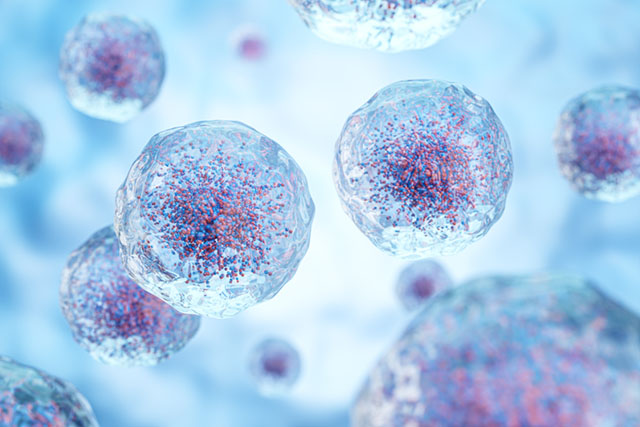 Program Leader: Matthew Matasar, MD, MS
Program Leader: Matthew Matasar, MD, MS
The Hematologic Malignancies Disease Specific Group (HEME DSG) is focused on the care of patients facing a diagnosis of various blood disorders. Blood disorders include illnesses of the bone marrow (the ‘factory’ for our blood) and cancers of the immune system. This includes cancers such as leukemia, lymphoma, multiple myeloma and other plasma cell cancers, myelodysplasia and myeloproliferative disorders. Caring for patients with such a diverse range of illnesses requires both breadth and depth of expertise, and the care teams within our group offer tremendous expertise in the diagnosis, treatment, and research in these fields. This expertise is at its heart multi-disciplinary, and we fully embrace the spirit of teamwork required to support patients and their loved ones through this journey. Excellent physicians, nurse clinicians and advanced practice providers, nurse navigators, social workers, dieticians, and genetic counselors work together both at Rutgers Cancer Institute and across RWJBarnabas Health to provide patients the holistic care that is so critical to achieving the best outcomes.
Increasingly, cutting-edge care of blood disorders requires consideration of the newest treatments such as cellular therapy, including stem cell transplantation as well as chimeric antigen receptor-modified T-cell (CAR-T) therapy. Our Blood and Marrow Transplant Program, led by Dr. Ira Braunschweig, offers tremendous expertise in the use of both FDA-approved and next-generation cellular therapies. Indeed, the Division is leading the way not only in treating patients with the best treatments currently available, but also in leading research to redefine the standards of care. Clinical research into more effective and less toxic treatments for patients with a diagnosis of a blood disorder is at the core of the Division’s mission, and we are leading pivotal clinical trials across the spectrum of illnesses faced by our patients to work towards achieving our mission of ending blood cancers and blood disorders, period. Please reach out if interested in a consultation with one of our experts, either in person or via telemedicine.
- Learn more about our Blood and Marrow Transplant Program, Leukemia/Lymphoma/Hematologic Malignancies Program.
- Find Hematologic Cancer Clinical Trials.
- To request an appointment, call 844-CANCERNJ.
Cell Therapy Disease Specific Group
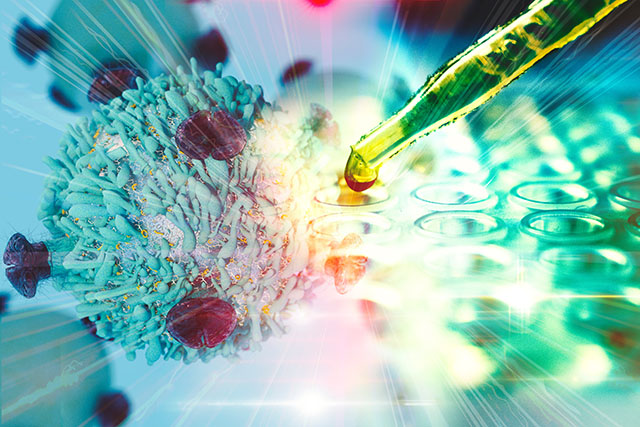 Program Leader: Christian Hinrichs, MD
Program Leader: Christian Hinrichs, MD
The Cell Therapy DSG is a vital component of Rutgers Cancer Institute's mission to develop effective treatments for solid tumors. Through clinical trials, the team translates discoveries made in the Cell Therapy Research laboratory into promising therapies for patients. The Cell Therapy DSG utilizes the Rutgers Cancer Institute Process Development Laboratory and Good Manufacturing Practice Facility to develop cutting-edge treatments, while investigators also collaborate with industry partners to ensure patients have access to the latest therapies.
The team is at the forefront of developing several types of cell therapy, including tumor-infiltrating lymphocyte therapy and engineered T cells therapies like CAR T-cells and TCR T-cells. The Cell Therapy DSG is conducting clinical trials for a variety of solid tumor types, including HPV-associated cancers, gastric cancer, melanoma, and ovarian cancer. Active clinical trials include both investigator-initiated interventional and non-interventional studies, as well as clinical trials of investigator-sponsored IND agents.
- Learn more about the Cancer Metabolism & Immunology Research Program.
- Find Immunotherapy Cancer Clinical Trials
- To request an appointment, call 844-CANCERNJ.
Lung and Head & Neck Cancer Disease Specific Group
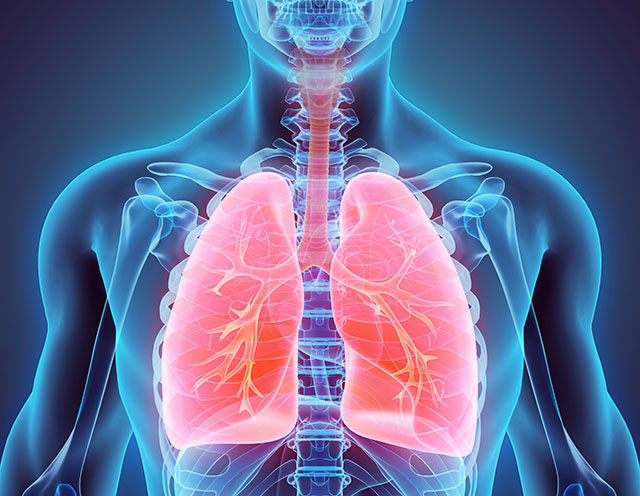 Program Leader: Missak Haigentz, MD
Program Leader: Missak Haigentz, MD
The Lung and Head & Neck Cancer Disease Specific Group (Lung/H&N DSG) at Rutgers Cancer Institute is charged with maintaining a portfolio of clinical trials of highest clinical and scientific value that covers the diversity of disease manifestations within our catchment area, advancing translational science and enhancing access to investigations of the most promising therapies for patients throughout New Jersey. Recent scientific advances in lung and head and neck cancers have led to transformational therapies for patients, resulting in some of the largest declines in national cancer death rates, with participants in current clinical trials contributing toward a brighter future.
Our philosophy of access relies on our partnership with the RWJBarnabas Health System, with a focus on bringing trials to patients in their local communities. Collectively, our efforts have led to a year over year improvement in trials enrollment since 2019, with a doubling of enrolled participants to therapeutic interventional trials in calendar year 2022. Our trials portfolio includes high priority trials sponsored by the National Cancer Institute, pharmaceutical companies and an increasing number are led by our own Rutgers Cancer Institute investigators.
- Learn more about the Lung/Thoracic Oncology Program.
- Find Lung/Thoracic Cancer Clinical Trials.
- To request an appointment, call 844-CANCERNJ.
Melanoma/Sarcoma Disease Specific Group
 Program Leader: : Sarah Weiss, MD
Program Leader: : Sarah Weiss, MD
The Melanoma/Sarcoma Disease Specific Group at Rutgers Cancer Institute provides comprehensive multidisciplinary care to patients with melanoma and other non-melanoma skin cancers such as Merkel cell carcinoma, basal cell carcinoma and squamous cell carcinoma, as well as sarcomas. Our team consists of experts in the fields of surgical oncology, medical oncology, radiation oncology, dermatology, and pathology. Our investigators meet weekly to discuss patient management and to formulate individualized treatment plans and approaches for each patient. We have clinical expertise in managing early through advanced stage melanoma, non-melanoma skin cancer, and sarcomas.
Rutgers Cancer Institute is the state’s only National Cancer Institute-designated Comprehensive Cancer Center. As such, our group is heavily focused on conducting clinical and translational research to improve patient outcomes and to develop better and newer therapeutic strategies for advanced skin cancers and sarcomas. Our goal is to offer the most cutting-edge therapies to our patients and to offer clinical trials whenever possible. Many of our clinical trials focus on immune-based approaches for patients with skin cancers who have not responded to standard immunotherapies and/or targeted therapies.
- Learn more about the Melanoma Oncology Program and Sarcoma & Soft Tissue Oncology Program.
- Find Melanoma Clinical Trials and Sarcoma Clinical Trials.
- To request an appointment, call 844-CANCERNJ.
Neuro-Tumor Disease Specific Group
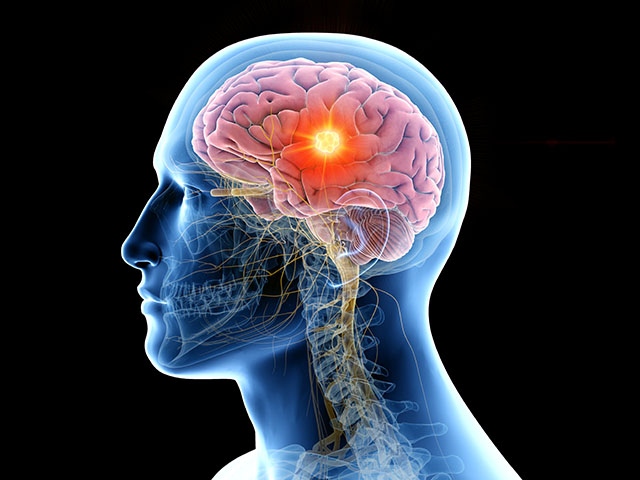 Program Leader: Morana Vojnic, MD, MBA
Program Leader: Morana Vojnic, MD, MBA
The Neuro-Tumor Disease Specific Group (DSG) is comprised of members from Rutgers Cancer Institute and multiple institutions within the RWJBarnabas Health system. We are focused on offering clinical trials for patients with primary central nervous system (CNS) tumors and metastatic tumors to the CNS at every stage of their journey. Currently we have several trials open for patients with glioblastoma (GBM), including NRG-BN011 for patients with newly diagnosed, methylated GBM; DOC1021 dendritic cell immunotherapy for patients with newly diagnosed GBM; safusidenib for patients with newly diagnosed IDH1 mutant glioma. We are also working to open multiple other sponsored and investigator initiated clinical trials.
We also have a number of trials for pediatric patients with primary CNS tumors, including diffuse intrinsic pontine gliomas (DIPG), medulloblastoma, papillary craniopharyngioma and low-grade glioma in neurofibromatosis type 1.
There are also active research trial efforts in the setting of metastatic CNS disease including studies in patients with Her2/neu positive breast cancer, small cell lung cancer and resected metastatic disease. We are also preparing to offer a trial utilizing targeted therapy tailored to the molecular profile of resected metastatic disease. Finally, in coordination with the early phase group, we have a trial of a novel compound for patients with several targetable mutations. We look forward to the future and honored to participate in this team effort to develop increasingly effective therapies with the goal of defeating cancer.
- Learn more about the Neurologic Oncology Program.
- Find Neurologic Cancer Clinical Trials.
- To request an appointment, call 844-CANCERNJ.
Pediatric Hematology Oncology Disease Specific Group
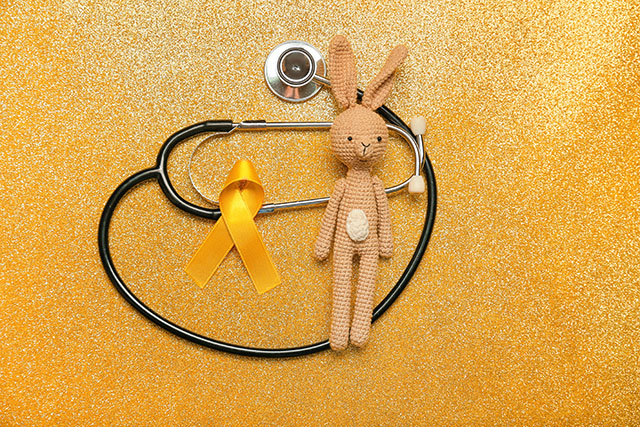 Program Leader: Peter D. Cole, MD
Program Leader: Peter D. Cole, MD
The Pediatric Hematology and Oncology Disease Specific Group is committed to improving outcomes for children with cancer or blood disorders through clinical research. We offer novel therapeutic approaches for children with a wide variety of common childhood cancers, including acute lymphoblastic leukemia, acute myelogenous leukemia, chronic myelogenous leukemia, Hodgkin lymphoma, non-Hodgkin lymphomas, brain tumors, bone tumors, and soft tissue sarcomas. We offer clinical trials for children with blood disorders such as sickle cell anemia and hemophilia. In addition, we offer clinical trials focused on innovative approaches to reduce symptoms and improve quality of life during treatment or in the survivorship period. Our clinical trial portfolio includes investigator-initiated trials, industry-sponsored trials, and trials offered by cooperative groups, such as the Children's Oncology Group and the Dana Farber Cancer Institute Acute Lymphoblastic Leukemia Consortium.
The multidisciplinary group includes pediatric hematologists and oncologists, radiation oncologists, pediatric surgeons, and psychologists. We work closely with laboratory scientists and population scientists at Rutgers Cancer Institute to bring the latest science to the development of novel clinical trials.
- Learn more about the Pediatric Hematology/Oncology Program.
- Find Pediatric Hematology Cancer Clinical Trials.
- To request an appointment, call 844-CANCERNJ.
Phase I/Investigational Therapeutics Disease Specific Group
 Program Leader: Sanjay Goel, MD, MS
Program Leader: Sanjay Goel, MD, MS
The Phase I/Developmental Therapeutics Disease Specific Group at Rutgers Cancer Institute is a multidisciplinary scientific group designed to develop new therapies for the treatment of cancer. The program includes a team of medical oncologists, surgical oncologists, advanced practice providers, research nurses, research scientists, clinical trial specialists, data coordinators, and social workers who have extensive experience in providing novel therapeutic strategies. The program conducts clinical trials of novel drugs, including cytotoxic chemotherapeutic agents, targeted therapeutic approaches (VEGF, claudin 18.2, among others), molecularly driven agents (targeting MTAP null tumors, FGFR fusions, her-2, PIK3CA mutations), and novel immuno-oncology approaches (including novel checkpoints, CAR-T, bi-specifics and TRINKETs). The clinical trials include first in human trials of novel drugs as well as novel combination approaches. These may also include combinations of drugs with radiation or surgery. Clinical trial offerings are diverse and include partnerships with academia, industry, and government.
The objectives of the program are twofold. At a systemic level, we strive to contribute to the effort of rational development of the next generation of breakthrough drugs that will help improve the lives of patients with cancer. At a more localized and personal level, we strive to make available therapeutic options within the context of a clinical trial for every patient with cancer who has progressive cancer despite the best efforts of their health care team.
- Learn more about thePhase I/Investigational Therapeutics Oncology Program.
- Find Phase I Cancer Clinical Trials.
- To request an appointment, call 844-CANCERNJ.
Population Science Disease Specific Group
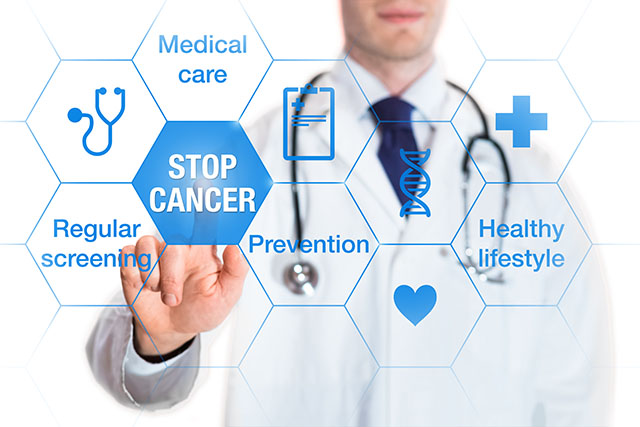 Program Leader: Katie Devine-Recuay, PhD, MPH
Program Leader: Katie Devine-Recuay, PhD, MPH
The Population Science Disease Specific Group (DSG) promotes high quality interventional and observational trials related to cancer prevention and control research. The DSG reviews and monitors investigator-initiated studies across a range of behavioral, epidemiological, and health services research that spans the cancer control continuum from primary prevention to survivorship. This DSG also monitors accrual and works with principal investigators to overcome any challenges to successfully enrolling and achieving the aims of the study.
The Population Science DSG portfolio contains a range of peer-reviewed externally funded trials as well as internally funded studies. Areas of strength include studies identifying and addressing disparities in cancer risk, screening, treatment, and survivorship, tobacco cessation and control strategies, cancer risk reduction, digital health interventions for cancer survivors, and improving care coordination during healthcare transitions.
- Learn more about our Section of Pediatric Population Science, Outcomes, and Disparities Research Program.
- Find Pediatric Cancer Clinical Trials.
- To request an appointment, call 844-CANCERNJ.
Radiation Oncology Disease Specific Group
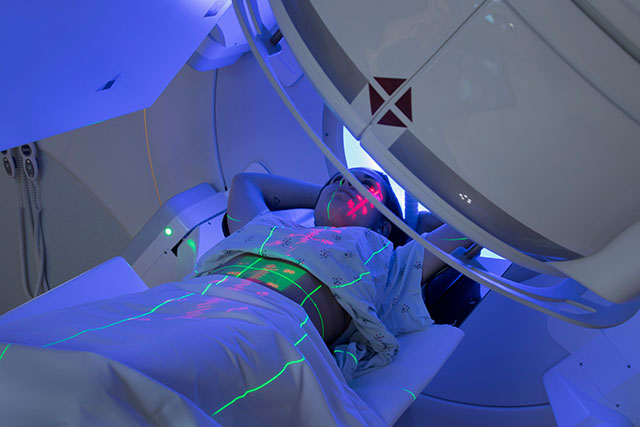 Program Leader: Salma Jabbour, MD
Program Leader: Salma Jabbour, MD
The Radiation Oncology Disease Specific Group (DSG) was newly created in 2022. The Radiation Oncology DSG fosters multiple innovative interventional radiotherapeutic studies across tumor types and across RWJBarnabas Health. The DSG reviews new studies for feasibility and interest and monitors the accrual of the clinical trials within the portfolio. The DSG meets monthly to discuss enrollment, addresses barriers to trial accrual, and reviews the status of trials through the pre-activation period. The DSG assesses areas of potential need and growth within the trial portfolio.
The Radiation Oncology DSG has several original investigator-initiated studies, both internally and externally funded. Some of these studies evaluate: the timing of radiation in breast cancer, an intensified regimen of preoperative chemoradiation and chemotherapy in rectal cancer, immunotherapy combinations with radiation in GI and lung cancers, radiation dose questions in bony and non-bone sites of painful metastases, and the use of early radiation oncologist involvement in the setting of palliation. The Radiation Oncology DSG also runs many National Cancer Institute funded trials through the National Clinical Trials Network (NCTN) and Experimental Therapeutics Clinical Trials Network (ETCTN) as well as industry funded clinical trials. These important clinical trials advance care for our Radiation Oncology patients.
- Learn more about our Radiation Oncology Program.
- Find Radiation Cancer Clinical Trials.
- To request an appointment, call 844-CANCERNJ.

